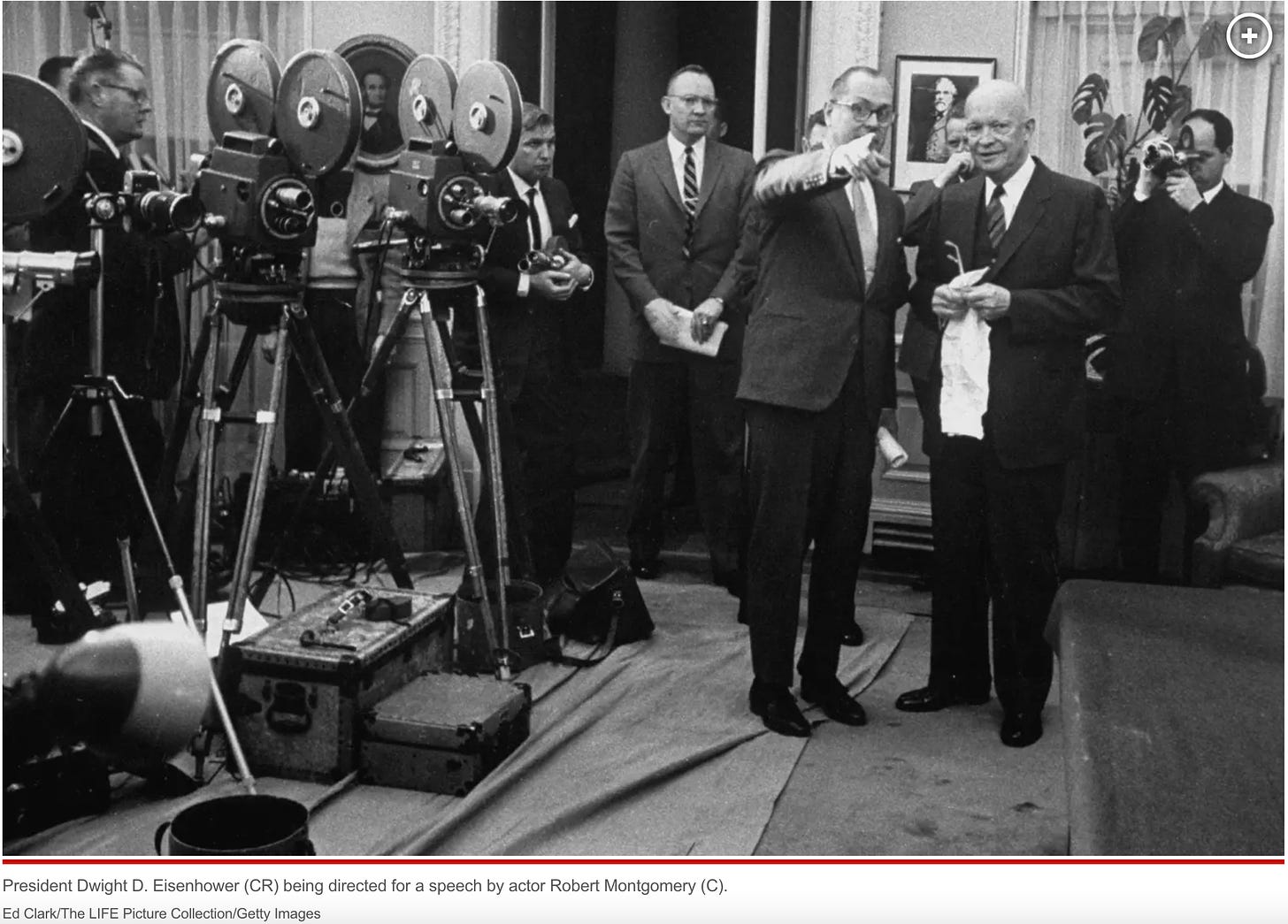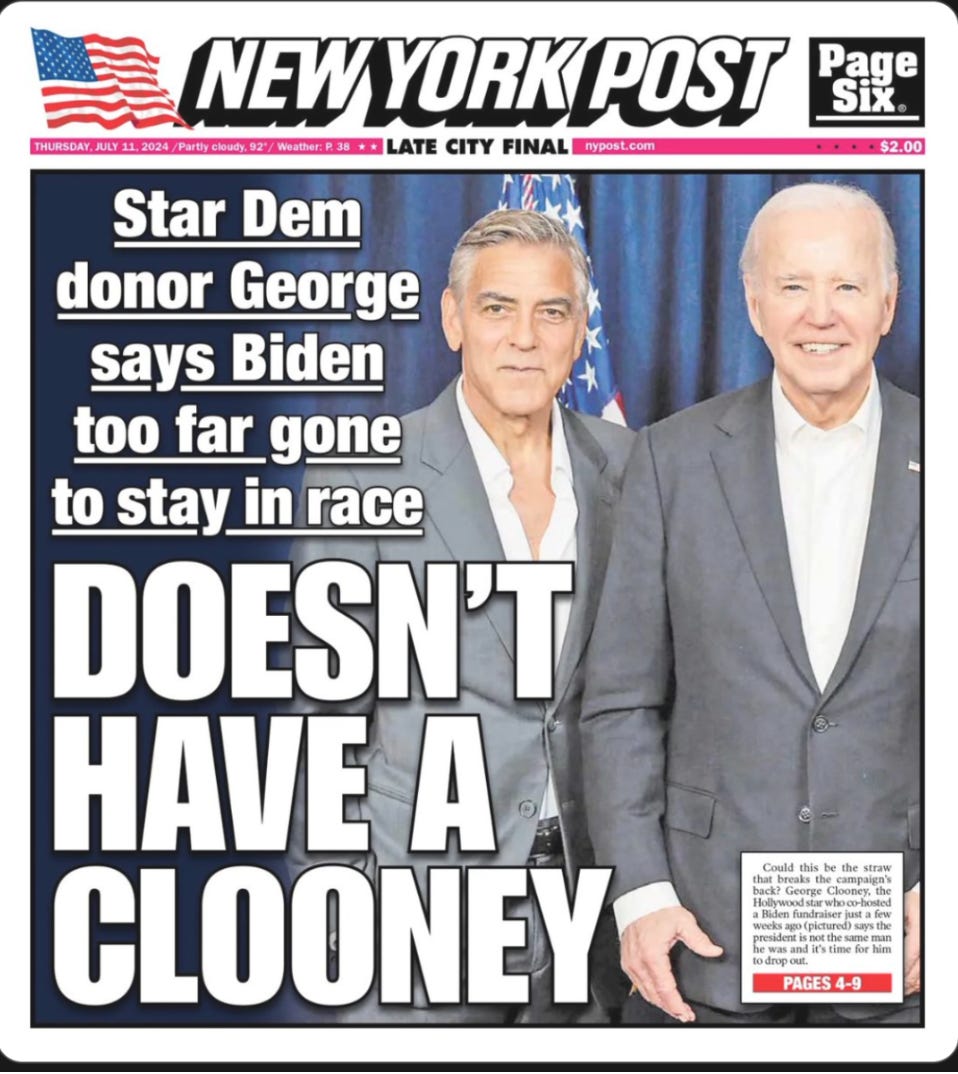We human beings understand the world in terms of stories. The more complex the reality, the more we NEED a good story—or narrative— in order to hold our attention and break it down for us. Every good police incident report begins with a basic narrative of the incident.
At its best, Hollywood is in the business of telling great stories with great actors. The best films tell stories that go to the heart of the human condition by showing characters locked in dramatic conflicts in which their emotions are given full expression.
Most of the people on earth today grew up watching Hollywood films, and the experience has shaped their view of themselves and their world. Our attitudes, manners, fashions, and even understanding of right and wrong have been heavily influenced by our favorite movies and characters.
Given the extraordinary power of film to affect our emotions and perceptions, it’s no wonder that our rulers have been interested in movies as a means of influencing public opinion about a range of topics, some of which touch on extremely large and powerful interests.
The most obvious of these powerful interests in that of what President Eisenhower called the Military-Industrial Complex—an interest group that seeks to prepare for war and to get the American people on board for doing so. For the Military-Industrial Complex, it’s imperative that the American people remain in favor of maintaining enormous defense spending. Last year’s DoD budget request was for $858 billion.
To achieve this, Americans must believe that our nation is constantly being threatened by foreign adversaries against whom we may, at any moment, be obliged to go to war. Mothers must accept that that their young sons and daughters may be killed, and the civilian population must believe in the purported necessity of our soldiers killing hundreds of thousands of human beings who reside in foreign countries.
That the Department of Defense has a longstanding relationship with Hollywood is no secret. Indeed, the DoD maintains a large Public Affairs office in Los Angeles, and freely states on its website:
The Defense Department has a long-standing relationship with Hollywood. In fact, it’s been working with filmmakers for nearly 100 years with a goal that’s two-fold: to accurately depict military stories and make sure sensitive information isn’t disclosed.
As anyone who has studied the history of Hollywood war pictures knows, few present a balanced and accurate depiction of war. With notable exceptions such as Stanley Kubrick’s Dr. Strangelove and Oliver Stone’s Platoon, Hollywood war films support official Department of Defense narratives and justifications of the wars our government has waged.
While George W. Bush was unpopular in Hollywood, it’s a notable fact that his “Bush Doctrine” of preemptive warfare was embraced by the Obama Administration and Secretary of State Hillary Clinton.
In recent years the Democrat Establishment has apparently “learned to stop worrying and to love bombing,” to paraphrase the subtitle of Dr. Strangelove. Indeed, many Baby boomers who now identify as Democrats have apparently revised their view of the Vietnam War that they protested in their youth. Now it seems that many entertain the thought that LBJ did the right thing by escalating the war.
Movie star endorsements of presidential candidates is yet another element of showbiz in politics. Because screen idols are so venerated, they have (in theory) the influence to sway millions of voters to choose their preferred candidate. In recent years, George Clooney has been a powerful supporter of Democrat candidates, and he may have sufficient influence to be considered a true kingmaker. There can be no doubt that Mr. Clooney is an influencer of the highest order. Consider that he started a private label tequila company (Casamigos), brought it to the public in 2013, and sold it in 2016 for around $1 billion.
Clooney made the news yesterday for withdrawing his support from President Biden. The influencer giveth and the influencer taketh away.
Speaking of the New York Post: while researching this essay I came across a detailed report published in the Post in 2014 under the headline How Hollywood became the ‘sixth estate’ of government, which I recommend to readers who are interested in this subject.







Interesting you find Dem baby boomers to have a different view of Vietnam these days. I honestly do not know of one person, from either party, who thinks Vietnam was justified or was a legitimate war. Everyone I know, from either persuasion is pissed about it to this day. In fact, more than they ever were as more info comes out over the decades.
"The most obvious of these powerful interests in that of what President Eisenhower called the Military-Industrial Complex—an interest group that seeks to prepare for war and to get the American people on board for doing so."
Check out this new post on what Australian Senator, Malcolm Roberts, calls "a Military- Pharmaceutical Apparatus" (US-UK-Can-Aus) with an updated overview of the Medical Countermeasures Consortium: “Did the Medical Countermeasures Consortium Run Covid?”
https://democracymanifest.substack.com/p/there-was-no-pandemic-only-a-pandemic